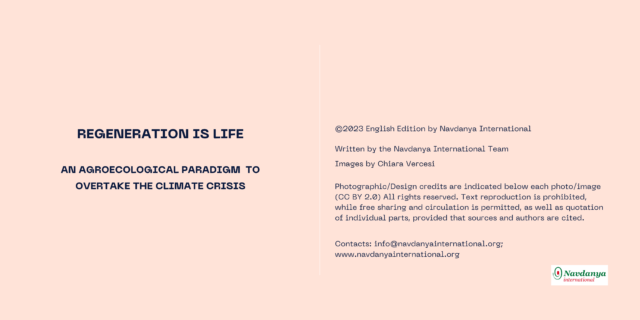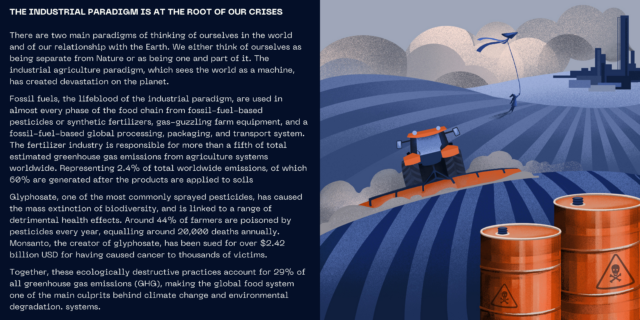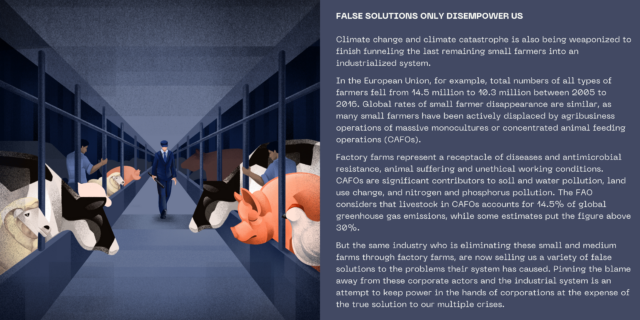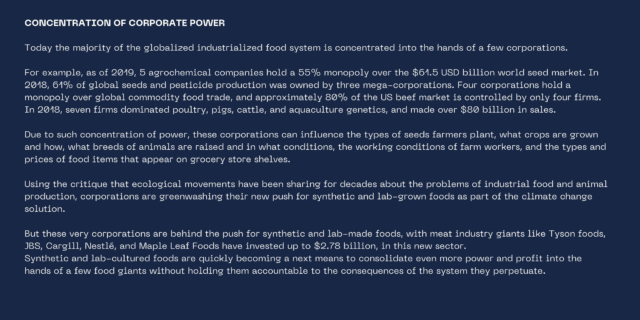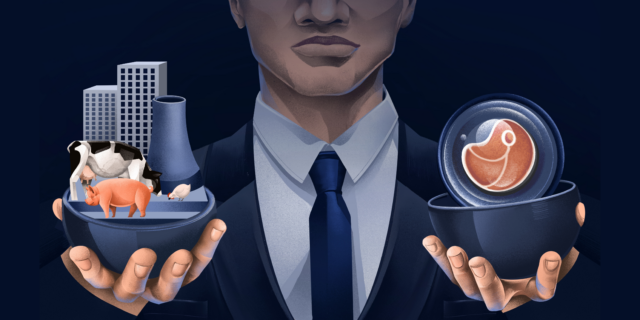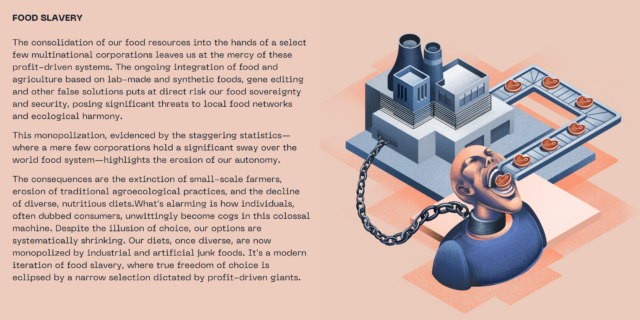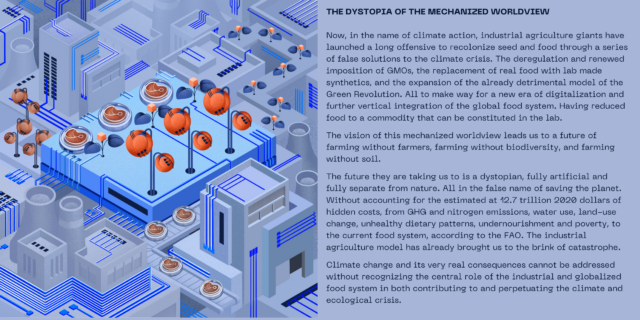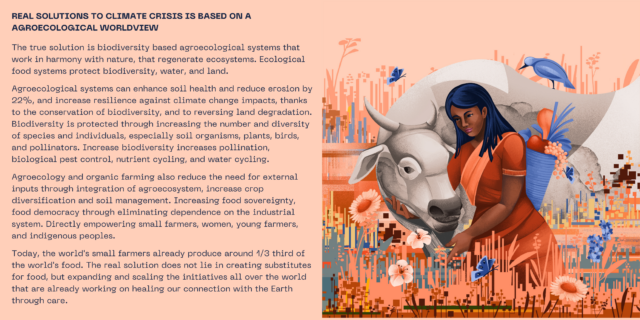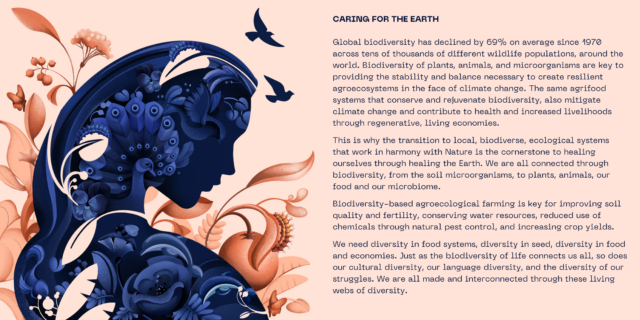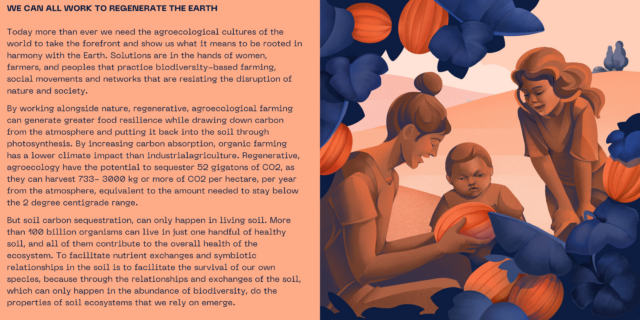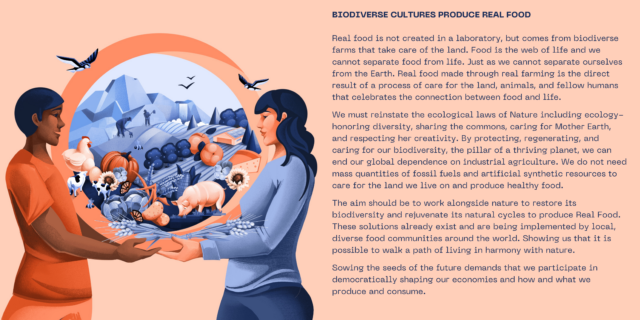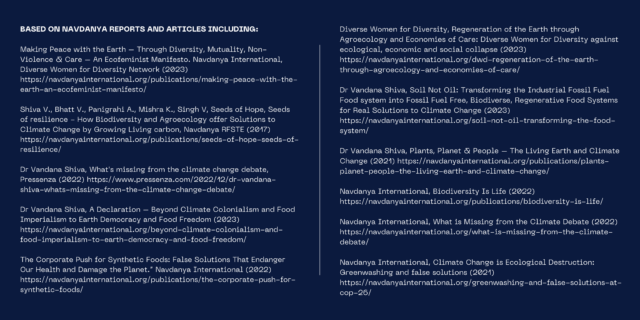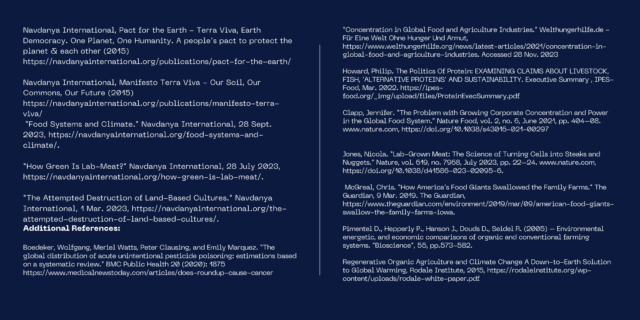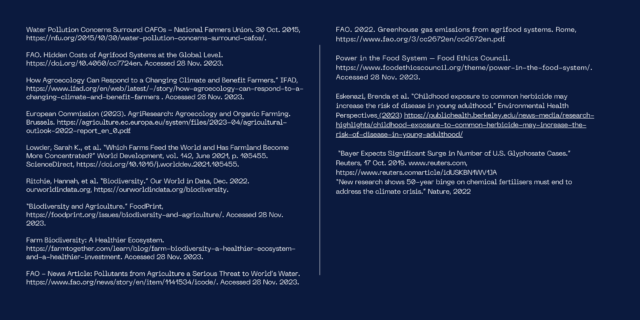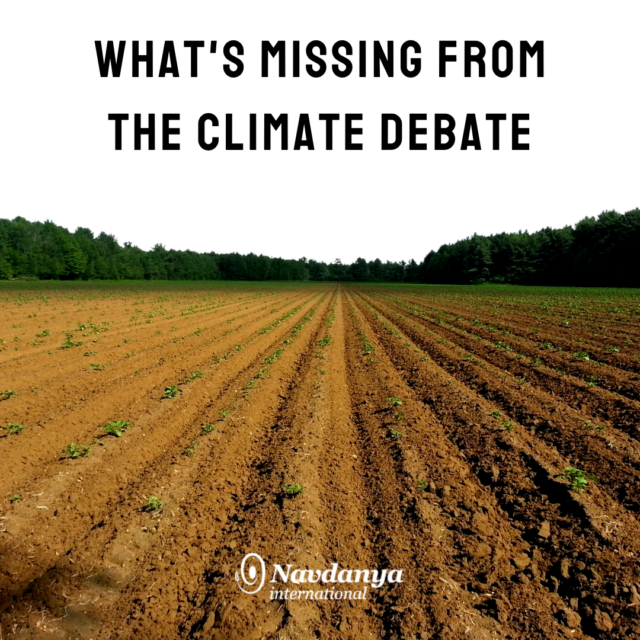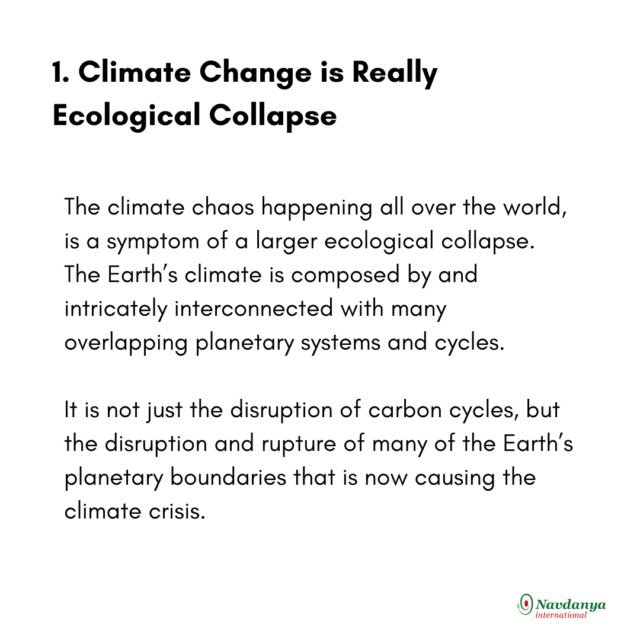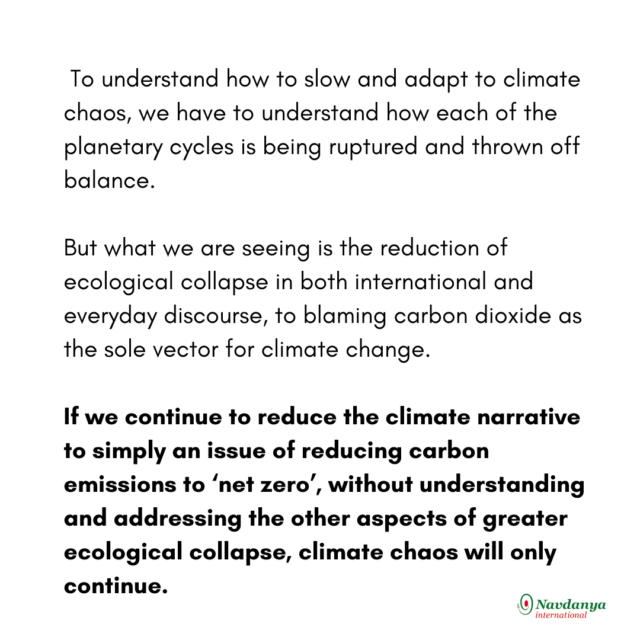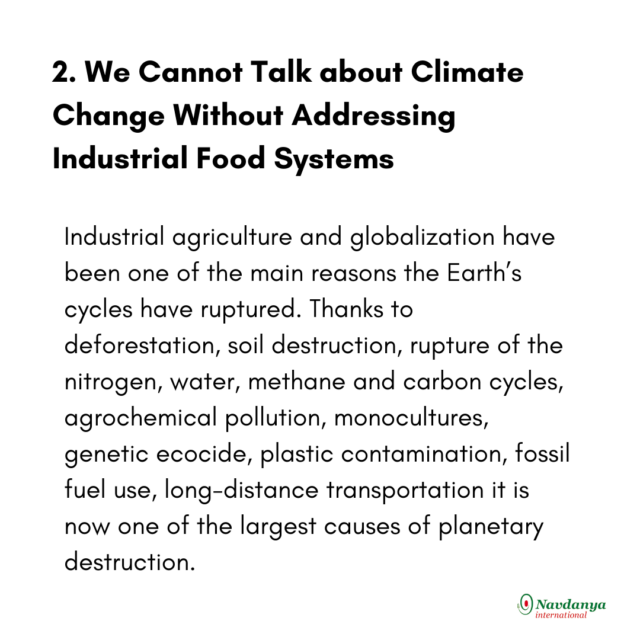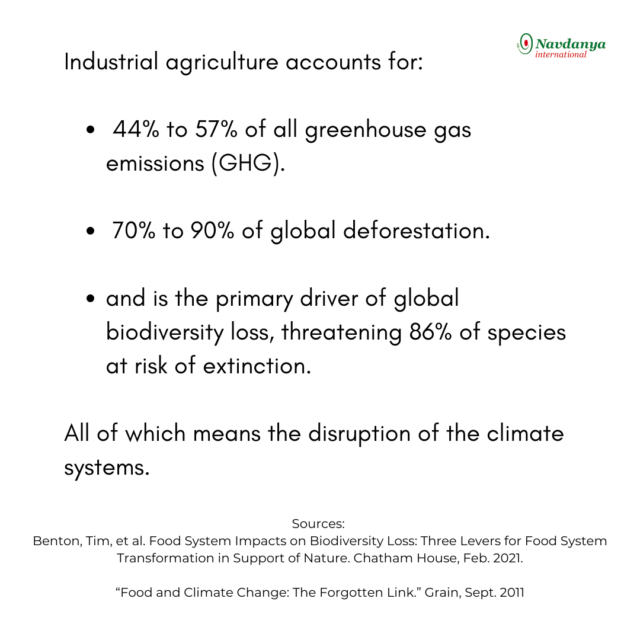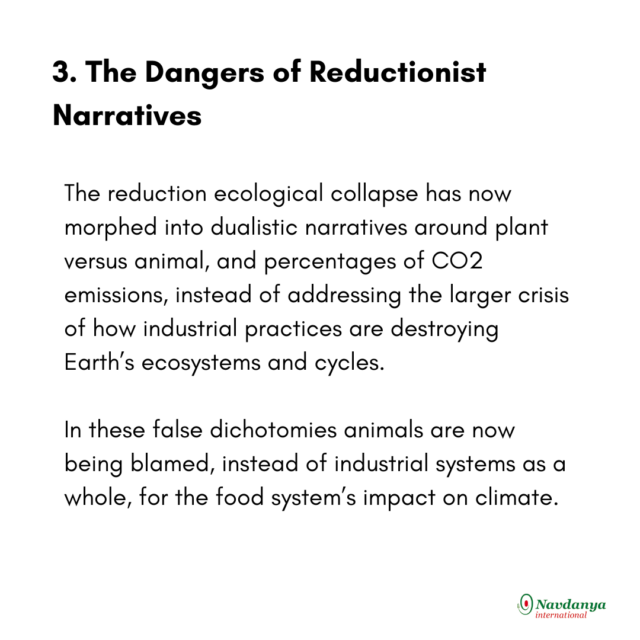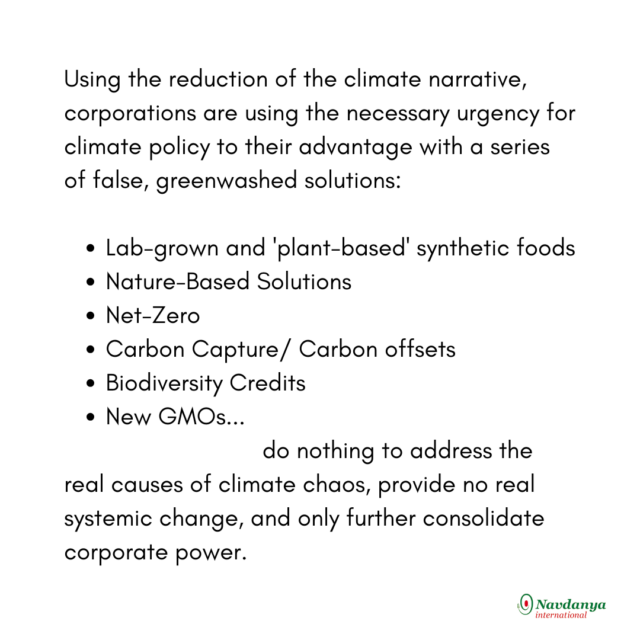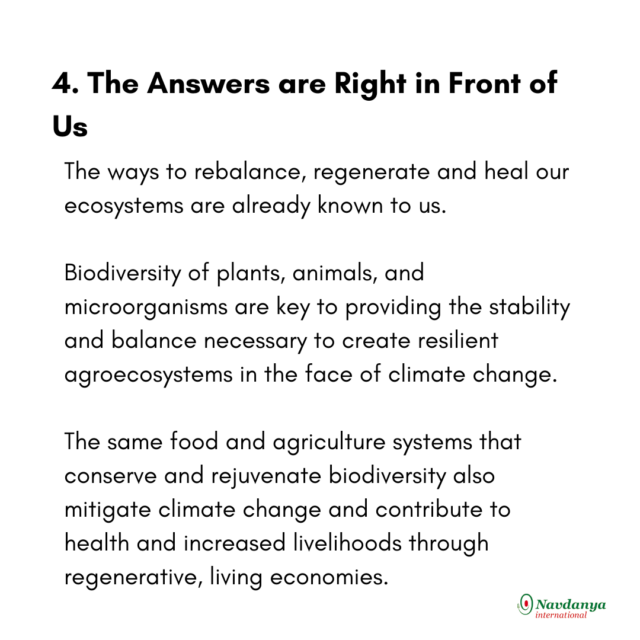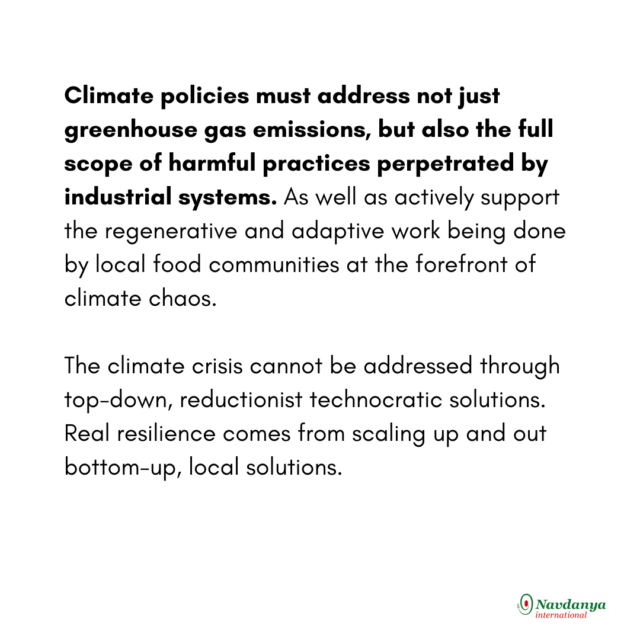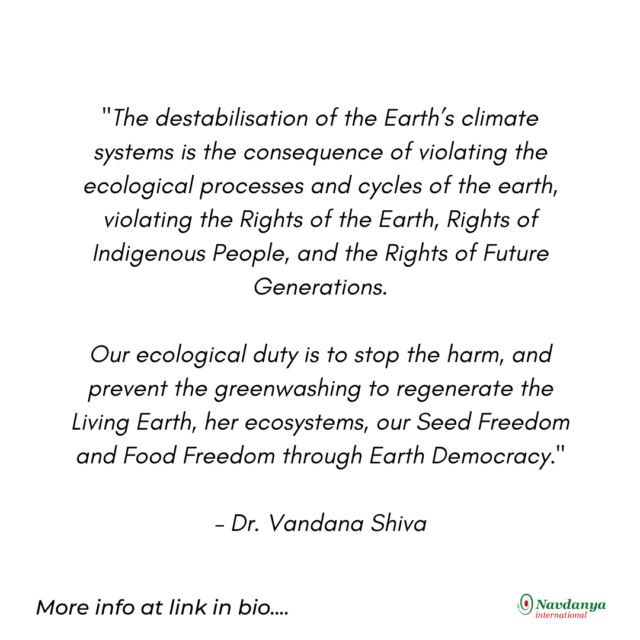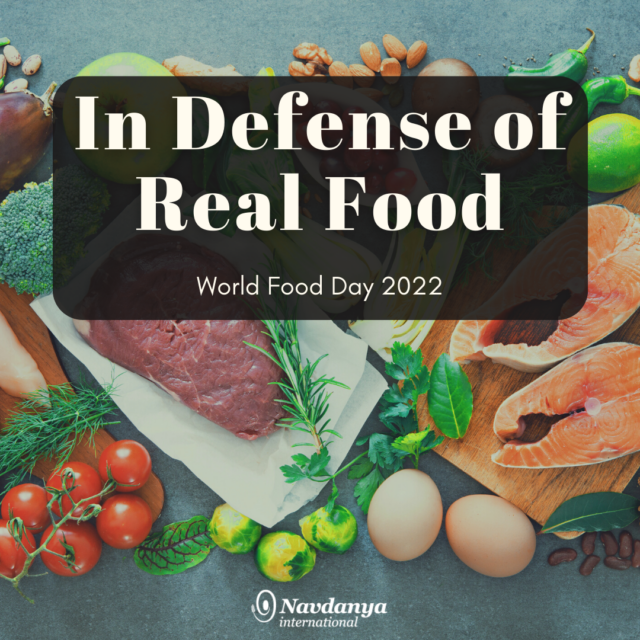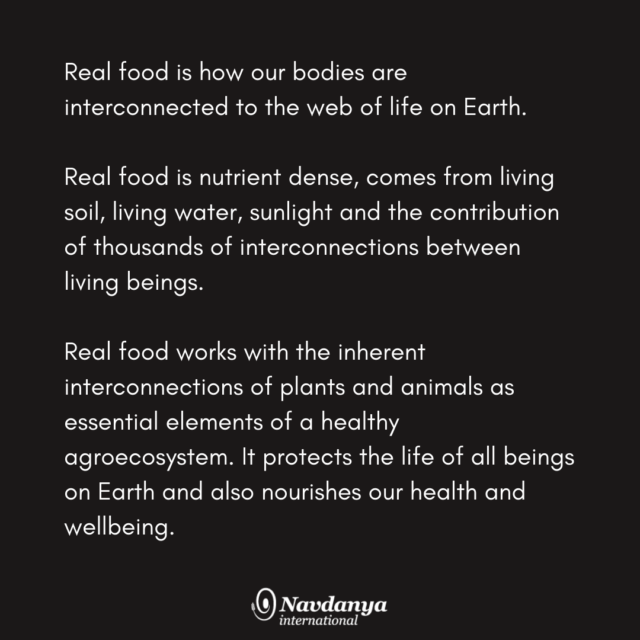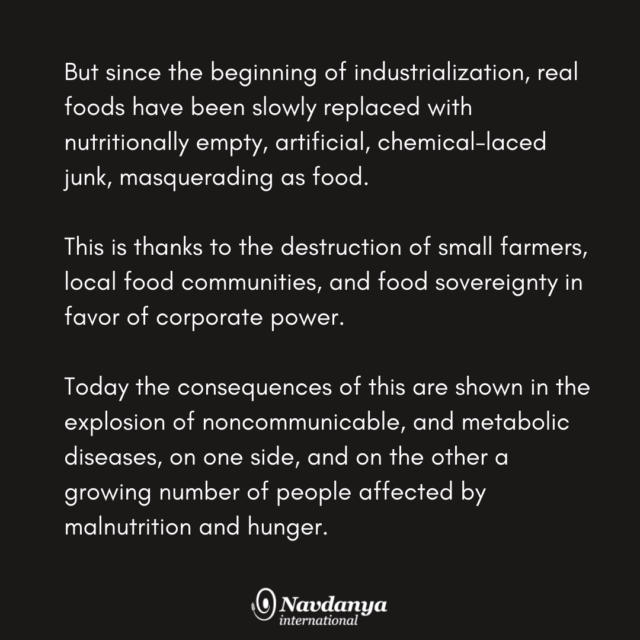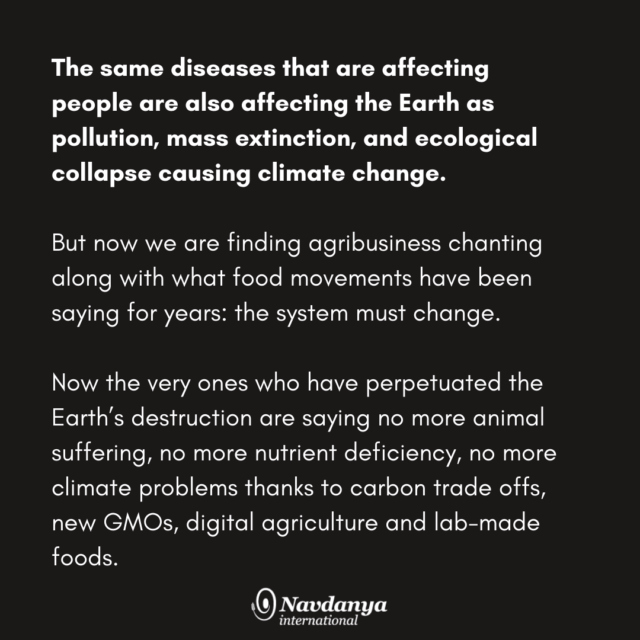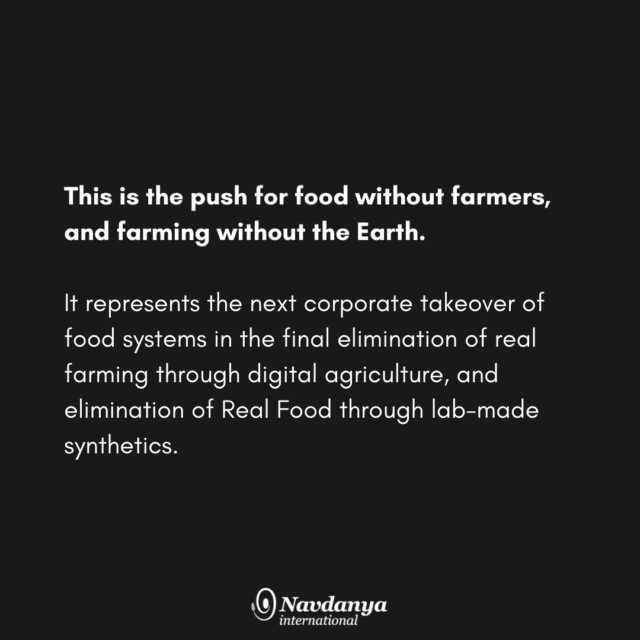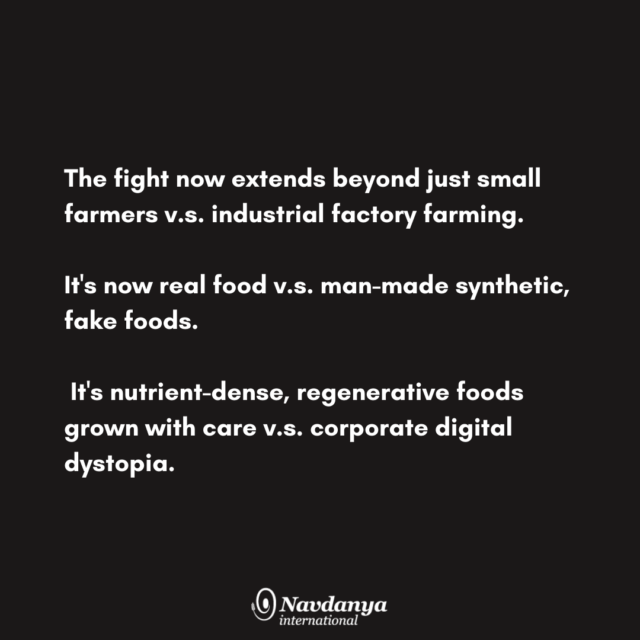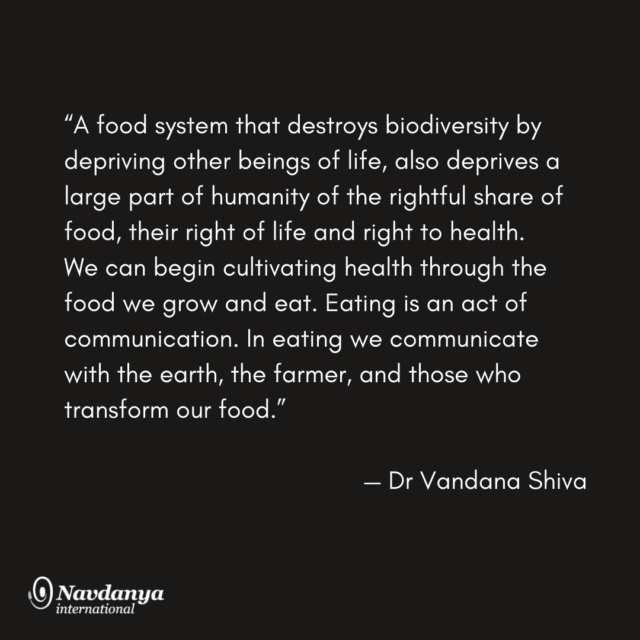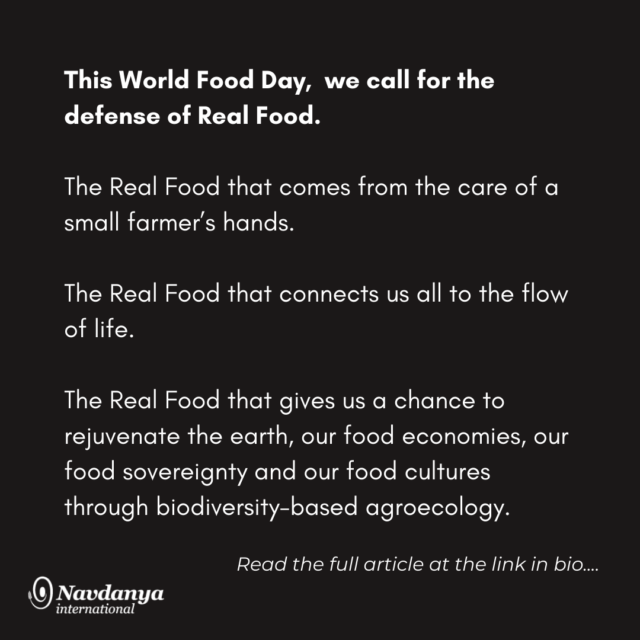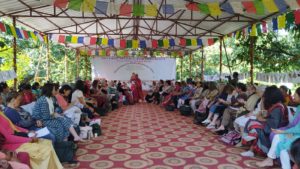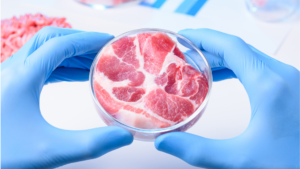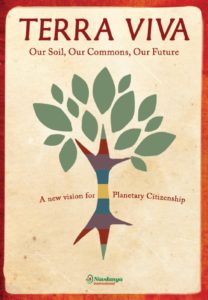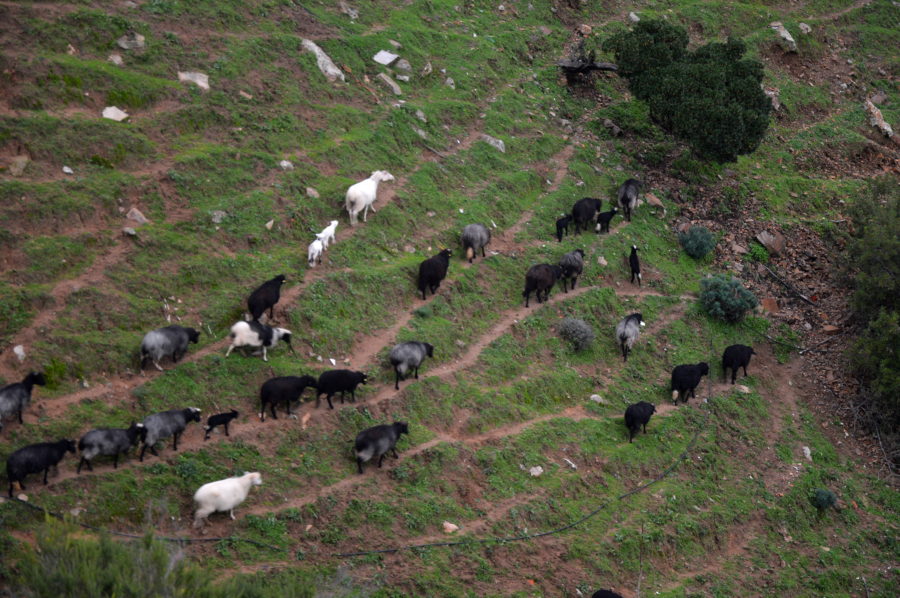
There are two main paradigms of thinking of ourselves in the world and of our relationship with the Earth. We either think of ourselves as being separate from Nature or as being one and part of it.
The industrial agriculture paradigm, which sees the world as a machine, and not as a self-organized living system, has created devastation on the planet through extraction and exploitation. Together, the ecologically destructive practices of the industrial agriculture paradigm account for 29% of all greenhouse gas emissions (GHG), making the global food system one of the main culprits behind climate change and environmental degradation. Acting as if the world were a machine undermines and eventually destroys living processes and organic systems.
Today more than ever we need the agroecological cultures of the world to take the forefront and show us what it means to be rooted in harmony with the Earth. The aim should be to work alongside nature to restore its biodiversity and rejuvenate its natural cycles to produce Real Food. These solutions already exist and are being implemented by local, diverse food communities around the world. Showing us that it is possible to walk a path of living in harmony with nature. We are part of the Earth’s systems, our food is a continuum of health from the ecosystems of the earth. We are deeply and inherently interconnected.
The real solution to the ecological and climate crisis does not lie in creating substitutes for food or expanding the industrial paradigm, but in scaling the initiatives all over the world that are already working on healing our connection with the Earth through care.
Illustrated Booklet: Regeneration is Life – An Agroecological Paradigm to Overtake the Climate Crisis (November 2023)
We need agroecological cultures– they show us the way to be rooted in harmony with the Earth.
In the wake of our current ecological crisis, we are starting to see how the very real issue of climate change and climate catastrophe is being weaponized to finish funneling the last remaining small farmers into an industrialized system.
Through the creation of polarizing dichotomies, blame is being pinned on animals, small farmers, and agroecological systems for our current climate crisis. Using the critique that movements have been making for years on the failures of industrial agriculture, in order to avoid the consequences of their system, corporations, lobby groups and governments are now calling for the elimination of all farming in the name of climate change mitigation. With the twisting of narratives around our global crises, made possible by the co-option of media and government policies, polarizing narratives to promote the inevitability of false solutions like new GMOs, the elimination of agriculture and hyper-processed lab-made foods.
But the same industry who is selling us these false solutions, are the same who have been in the business of factory farming for decades. Factory farms that represent a receptacle of diseases and antimicrobial resistance, animal suffering and unethical working conditions. That have destroyed local rural economies and land cultures, and have only concentrated more power into the hands of a few. Pinning the blame away from these corporate actors is an attempt to keep power in the hands of corporations at the expense of the true solution to our multiple crises.
What is at risk is the final elimination of the last truly free farmers, of traditional agroecological practices, traditional diets, biodiversity and cultures of resilience. The call to eliminate animals, in favor of lab-made foods, moves attention away from the real solutions offered by the growing regenerative agriculture movement and disregards the role of small producers and food communities in shaping our food systems.
True solutions, climate resilience and ecological regeneration will only come from different examples of those cultures, food systems, and knowledge systems that already live in harmony with the Earth.
Article: What is Missing from the Climate Debate (Nov. 2022)
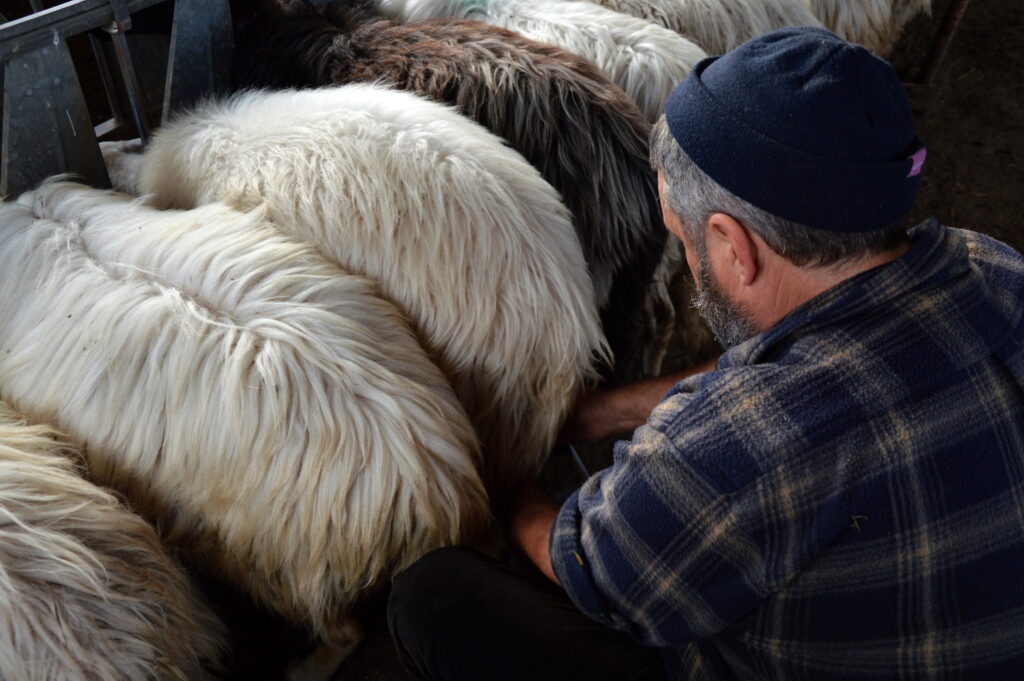
Shepherd Giovanni Masia hand-milking the sheep at his farm in Olmedo, Sassari.
The Emblematic Case of Sardinia
From December 10th to 17th 2022, Navdanya International visited Sardinia, Italy to capture on the ground perspectives as part of our Food Systems and Climate research. For centuries human settlements and landscapes in Sardinia have been characterized by the presence of shepherds, forming a long-standing tradition of co-existence between communities, animals and the surrounding ecosystem. Our fieldwork in Sardinia explores the deep interconnections between local food systems and cultural heritage, in a land that is home to ancient agroecological knowledge and diverse food cultures. Cultures that are now threatened by further industrialization and the imposition of false solutions.
Navdanya International met with and interviewed local, organic shepherds and farmers to capture the rich heritage of their practices, witness their relationship with their land and animals, their local food cultures, and better understand the challenges they face in a globalized economy. Our work has focused on listening and giving importance to the voices of local shepherds and farmers, as voices of resilience, in producing genuine food by integrating animals into their lives and agroecosystems to form reciprocal, ecological relationships.
Video Playlist: Shepherds’ Voices

In order to erase the last remaining small farmers, corporate-sponsored narratives are now pushing for the reduction of complex ecological collapse, and climate change, into dualistic narratives around plant versus animal.The integral, complex, and interconnected husbandry of animals in many traditional cultures around the world is now being lumped in with industrial animal production, effectively erasing the importance of these traditional land-based cultures.
We must see the recentering of economies to be local, circular, and regenerative, in line with ecological rhythms and boundaries that support these symbiotic relationships. Not the destruction of them for the sake of corporate profit and reductionist ideals. The defense of real food, and real food/ land-based cultures is now more important than ever, as it also represents the defense of the small farmer, and the defense of our relationship to life itself.
This means stepping back onto the path of life which has sustained humanity over millennia where communities and cultures have co-evolved in their ways according to their climates, soils, and biodiversity, contributing to the diversity of food and farming systems, weaving biodiversity and cultural diversity symbiotically.
Article: The Attempted Destruction of Biodiversity-based Cultures (March 2023)
So, are we going to look to those who regard land, food, and life as extractible, commodifiable, profitable objects to solve the problem which stems from the fundamental disconnection to the Earth and Life? Or do we look to the generational stewards, the indigenous people who speak for their lands, the independent scientist evolving the science of agroecology, and the careful small farmer? Who are the ones that can teach us how to care for the Earth?
The defense of real food is now more important than ever, as it also represents the defense of the small farmer, the defense of our relationship to the Earth, and to life itself.
Real food is nutrient dense, comes from living soil, living water, sunlight and the contribution of hundreds, if not thousands of interconnections with other living beings (including animals).
Real food comes from the care of a small farmer’s hands.
Real food works in tandem to the inherent interconnections of both plants and animals as essential elements of a healthy and balanced agroecosystem. It is made by caring for multidimensional health necessary to produce nutrient rich foods for generations to come.
Real food accepts, honors and humbly respects the cycles of life and death inherent in the Earth’s cycles.
Real food connects us all to the flow of life.
Real food gives us a chance to rejuvenate the earth, our food economies, food sovereignty and food cultures.
Article: In Defense of Real Food (Oct, 2022)
Campaign
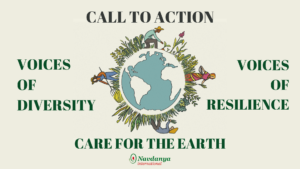 Call to Action 2023 – Care for the Earth – Voices of Diversity, Voices of Resilience
Call to Action 2023 – Care for the Earth – Voices of Diversity, Voices of Resilience
Let’s say no to the corporate impositions.
Let’s celebrate biodiversity and diversity in all its forms.
Let’s listen to the voices of the seed keepers, the women, the indigenous people who care for the Earth in a way that renews it.
Now, more than ever, is the protection of diversity, biodiversity, Food Freedom and Seed Freedom crucial for a future that cares for the Earth.
Let us adopt this journey in our communities to create a healthier us and a healthier planet.
Also read:
Declaration – Beyond Climate Colonialism and Food Imperialism to Earth Democracy and Food Freedom
Other Resources
As we are witnessing severe interrelated crises in our societies, at the ecological, social and economic level, the voices and practices of those who are guarding, regenerating and protecting food, biodiversity and the living communities of the Earth stand together as the voices of diversity against the uniformity and violence that is driving humanity into ecological collapse.
Synthetic foods are the next generation of ultra-processed foods made through the hyper-processing of industrially produced crops, a combination of processed and artificial ingredients and completely new ingredients produced through synthetic biology, (or so called ‘precision fermentation’), and cell-culturing. These products use a combination of gene editing used for the precision fermentation, industrial ingredients, and traditional commodity supply chains to create a product that only further entrenches our already highly problematic and destructive globalized food system.
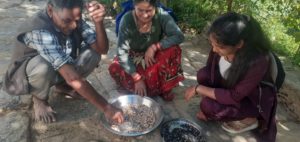 Biodiverse, circular and local food systems are the foundation of food sovereignty
Biodiverse, circular and local food systems are the foundation of food sovereignty
By Dr Vandana Shiva – «… Around the world, small farmers are already implementing organic farming based on biodiversity, and real food free of chemicals. They are practicing agroecology, preserving and nurturing their soils and seeds. They are feeding their communities with healthy, nutritious food while regenerating the soil and the planet. True agriculture is practiced in harmony with the laws of nature and leads to the regeneration of the planet through the renewal of biodiversity, soils, and water. We need to support small farms that care for the earth, for all life, and produce biodiverse, healthy, fresh, environmentally friendly food for all…»
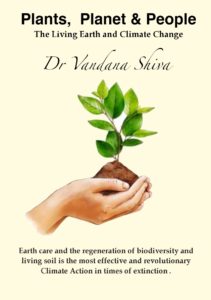 Plants, Planet & People – The Living Earth and Climate Change
Plants, Planet & People – The Living Earth and Climate Change
Author: Dr Vandana Shiva – Earth care and the regeneration of biodiversity and living soil is the most effective and revolutionary Climate Action in times of extinction.
The solutions to Food Crisis, Biodiversity Erosion and the Climate emergency lie in making peace with the Earth , recognising that the Earth is living, her biodiversity and biosphere regulate her climate, and are the ecological foundation of food production. The more closely and intimately we work in partnership with nature according to ecological laws, the more we serve Mother Earth and care for her, the more we intensify photosynthetic activity and increase biodiversity and biomass, we conserve and regenerate biodiversity. Biodiversity regeneration and intensification allows us to grow diverse, healthy food and reverse
hunger, malnutrition and disease. The more dense we make the ecological circular economies of nutrition in partnership with nature’s recycling, the more fertile our soils become, we reverse desertification. By recycling carbon and nitrogen while ending our dependence on fossil fuels, we reverse atmospheric pollution and address climate change. Working in partnership with nature to regenerate the biodiversity of her plants and biodiversity in the soil is the real solution to Climate Change.
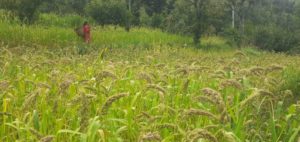 Climate Change is Ecological Destruction: Greenwashing and false solutions at COP 26
Climate Change is Ecological Destruction: Greenwashing and false solutions at COP 26
The COP26, which took place in November 2021, marked yet another failed attempt at tackling power structures in the food system. NI published a response to big tech investors and governments advocating a range of inefficient, and often dangerous solutions that are geared towards replacing the very natural processes they have been destroying. NI exposes the false solutions cloaked as “climate action”, including artificial lab food, gene editing, carbon capture, carbon credits, net-zero and geoengineering.
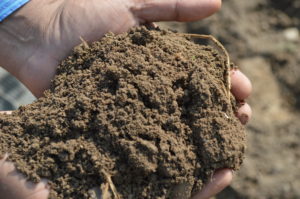 The Nitrogen Problem in Agriculture
The Nitrogen Problem in Agriculture
By Dr Vandana Shiva – «… Soil is a living system. There are multiple pathways to regenerate the Soil and Soil Nitrogen and heal the nitrogen cycle. The living soil was forgotten for an entire century with very high costs to nature and society. Soil was defined as an “empty container” for pouring synthetic fertilisers into, which were falsely seen as the source of soil fertility. “Bread from air” was the slogan after the discovery of the Haber Bosch process for fixing atmospheric nitrogen by burning fossil fuels. The illusion grew that we did not need soil. There was the exaggerated claim that artificial fertilisers would increase food production and remove all ecological limits that land puts on agriculture. Today the evidence is growing that artificial fertilisers have reduced soil fertility and food production and contributed to desertification, water scarcity and climate change…»
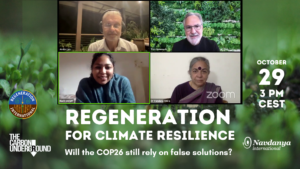 Webinar: Regeneration for Climate Resilience – Highlights
Webinar: Regeneration for Climate Resilience – Highlights
October 29, 2021, with Dr. Vandana Shiva, President of Navdanya International, André Leu – International Director of Regeneration International, and former President of IFOAM – Organics International; and Tom Newmark – co-founder and chair of The Carbon Underground. The discussion focused on how true biodiversity-based, ecological and cultural regeneration is needed to build climate resilience for the future. The speakers highlighted how, in the name of solving the climate crisis, large corporations, industries, and lobby groups are now promoting a whole range of ineffective, costly, unproven, and sometimes dangerous techno-fix solutions that completely deny the power of nature to regenerate, by attempting to technologically replace the natural processes they have been destroying. It is therefore crucial now to not stop resisting and advocating for a transformative approach based on agroecology, which – as a practice of regenerative agriculture – represents a cornerstone of the necessary paradigm shift for building climate resilience by regenerating our planet, our biodiversity, our local communities, our health, and our democracy.
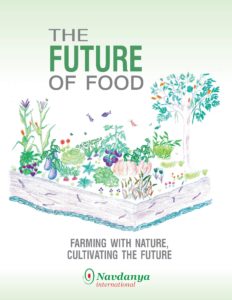
The Future of Food – Farming with Nature, Cultivating the Future
This 2019 report brings together international experts and gathers evidence of global resistance against the industrial agrifood system, as well as examples of good ecological practices among farmers, local communities and civil society organizations, as part of Navdanya International’s campaign for Poison-free Food and Farming. In continuation of the work of the International Commission on the Future of Food and Agriculture, the report offers a global perspective and is a sequel to the analysis of agri-food systems begun with the publication of the Food for Health Manifesto of 2018.
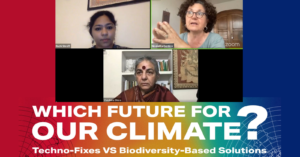 Which Future for our Climate? Technofixes vs Biodiversity-based solutions – Highlights
Which Future for our Climate? Technofixes vs Biodiversity-based solutions – Highlights
On 23 June 2021, Navdanya International hosted an online event – Which Future for our Climate? Technofixes vs Biodiversity-based solutions. This workshop and discussion was organised as part of the European project ClimAlt, co-funded by the European Union’s Erasmus+ programme and developed in partnership with four other European organisations. During the event, we were joined by Dr. Vandana Shiva, President of Navdanya International, and Nicoletta Dentico, journalist, and Director of the Health Justice Programme of the Society for International Development (SID), who discussed real and false solutions to climate change.
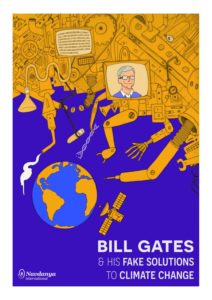 Bill Gates & his Fake Solutions to Climate Change
Bill Gates & his Fake Solutions to Climate Change
This 2021 report details the reasons behind Bill Gates’ attempts to focus the debate on miraculous technologies to fix climate change. Gates’ many investments allow him to impose his techno-solutionist strategy through direct influence over all types of global development protagonists. The report highlights one of Gates’ most recent prescriptions: synthetic food, which aims to replace animal products with highly processed ingredients. Ironically, these plant-based meat alternatives, which claim to be healthier and to save animals and the environment, are instead directly contributing to the food system that is destroying wildlife, polluting the soil and water, warming up the planet and threatening our health. The patenting of these artificial food growing techniques as well as the other technological innovations, ensure the further concentration of failed industrial models guaranteeing corporate and billionaire profit-making, while shifting power away from farmers and toward biotech companies. These false solutions only work to divert attention away from the deep systemic changes that are needed to address the current crises.
The Manifesto identifies the false assumptions that are leading to the destruction of the foundations of our very existence and offers a new paradigm for a new Agriculture, a new Circular Economy based on the “Law of Return”, towards a new Democracy based on justice, dignity, sustainability, and peace.
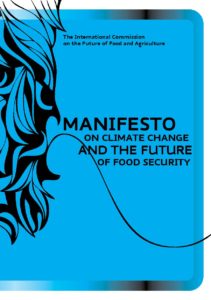 Manifesto on Climate Change and the Future of Food Security
Manifesto on Climate Change and the Future of Food Security
This Manifesto highlights the need to change to a productive model that minimizes the system’s vulnerability to external shocks and hazards and that contributes sustainably to mitigating the effects of climate change, based on a strong multifunctionality able to maximize the role of agriculture as a service of the ecosystem and as a tool to strengthen such system, and that guarantees family farming a pivotal role in a new system of production.


